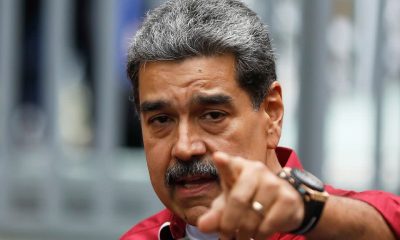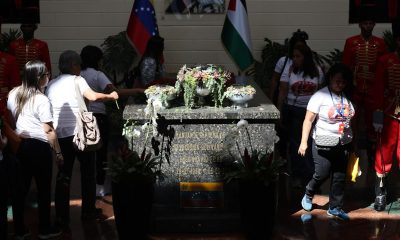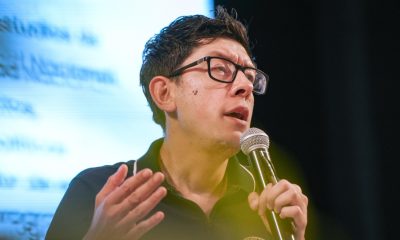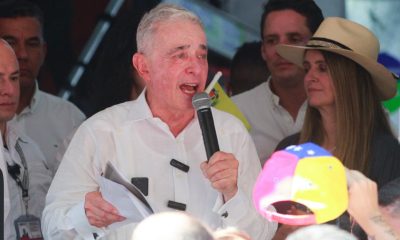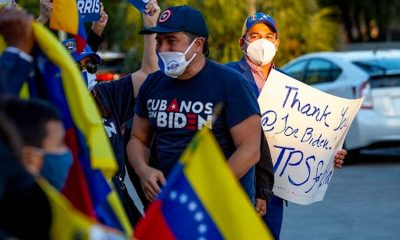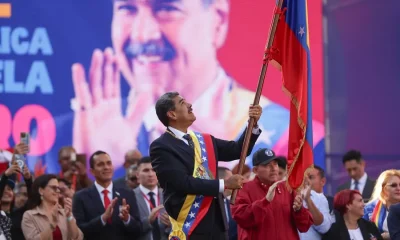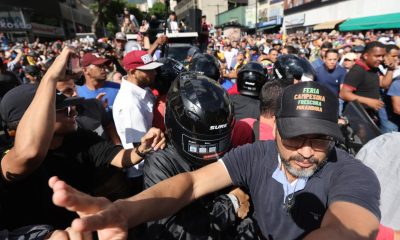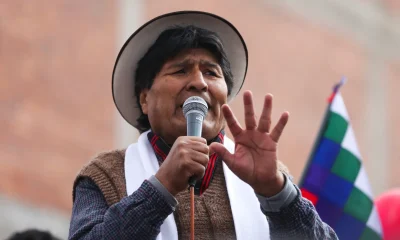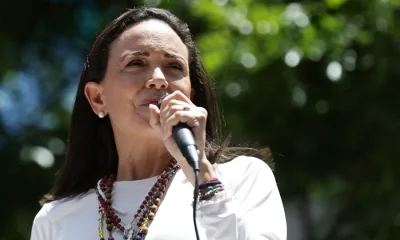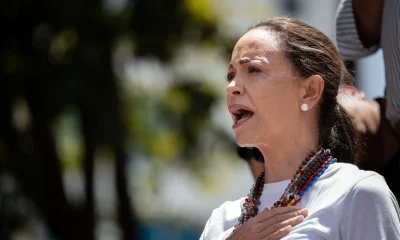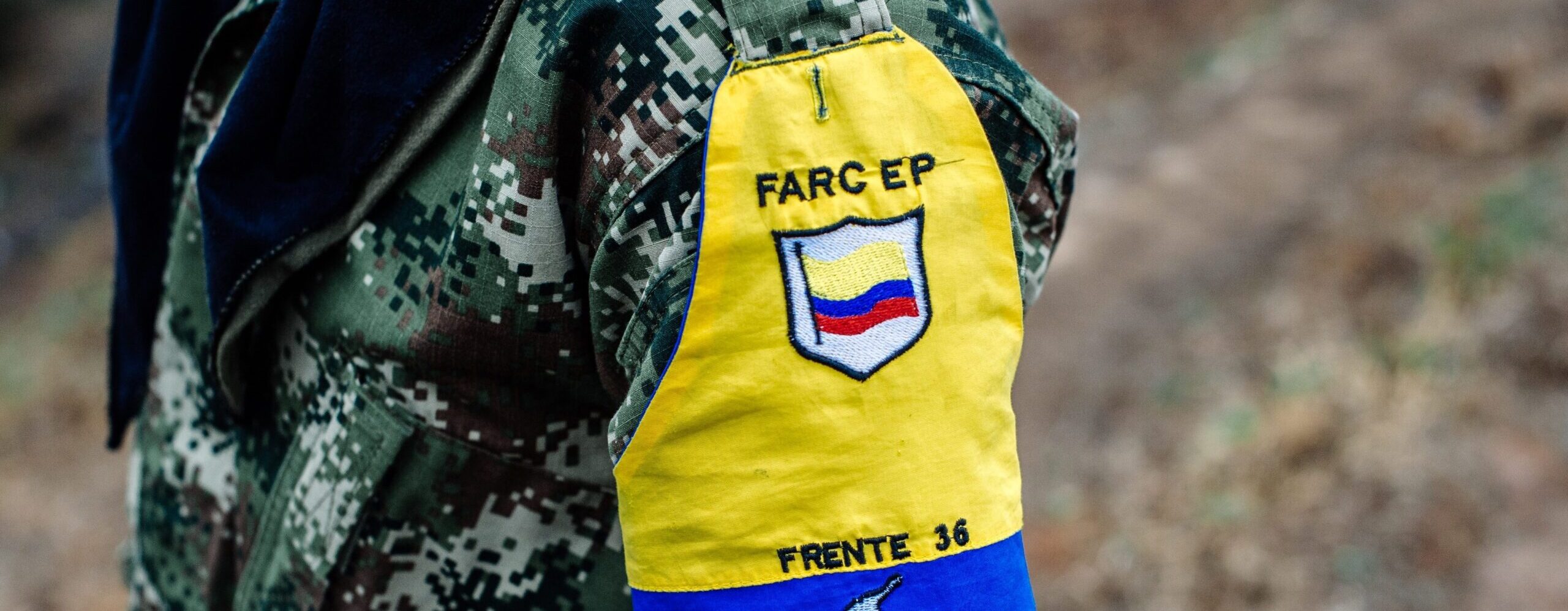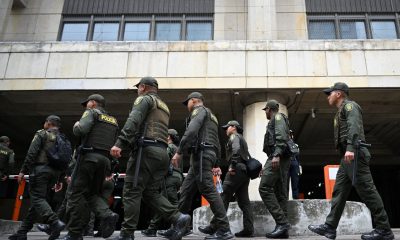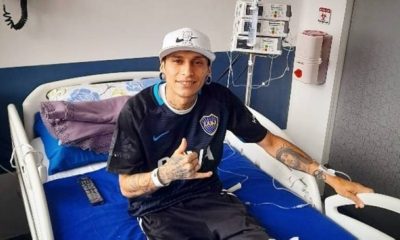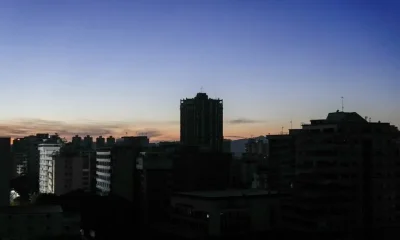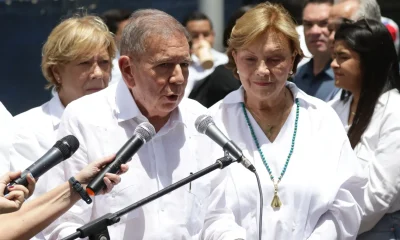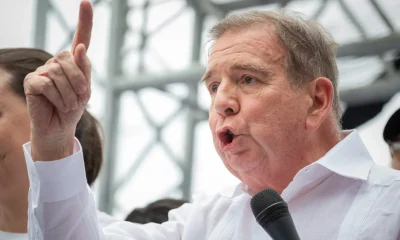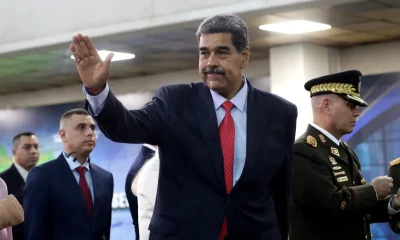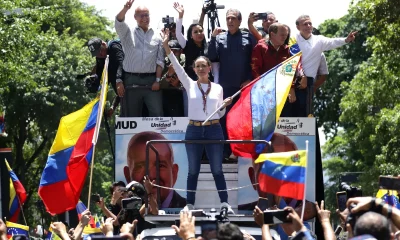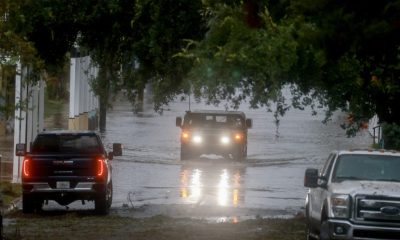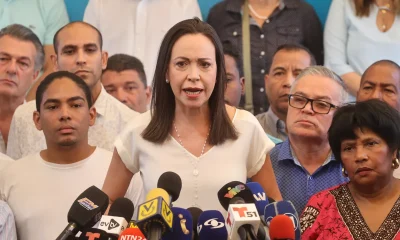International
Venezuela’s Maduro to resume talks with opposition Friday
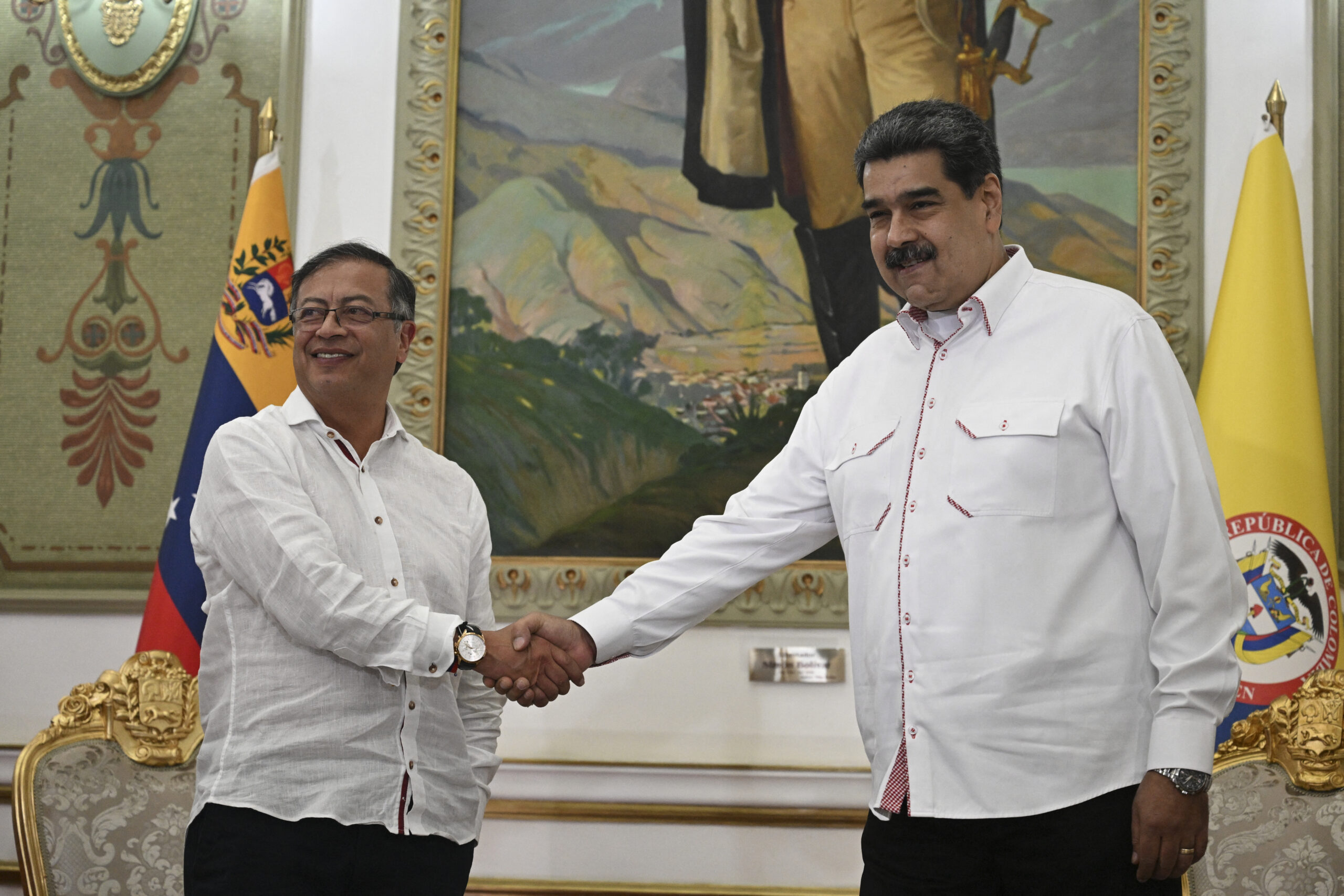
| By AFP | Esteban Rojas with Lina Vanegas en Bogota |
Venezuelan President Nicolas Maduro’s government will resume talks with the opposition Friday after more than a year in a bid to resolve a political crisis that has gripped the country since a contested 2018 election.
Formal negotiations between the two sides last took place in October 2021 in Mexico, and international efforts have mounted in recent months to get the talks back on track.
The opposition is seeking free and fair presidential elections, next due in 2024, while Caracas wants the international community to recognize Maduro as the rightful president and lift sanctions.
“Dialogue between Maduro’s government and the Venezuelan opposition will resume on the 25th and 26th of November,” Colombia’s President Gustavo Petro wrote on Twitter.
Venezuela opposition leader Juan Guaido’s office, however, tweeted that “information about a possible agreement and restart of the negotiations will be announced by official sources,” or by “the facilitating country, Norway.”
“Speculation hinders the possibility of a deal,” the office said.
While Colombia’s Petro did not specify where the talks would take place, a Venezuelan opposition source close to the negotiations told AFP the delegations would meet in Mexico City on Friday.
Venezuela was already facing a severe economic crisis and a brutal government crackdown on protests when a contested presidential election in 2018 plunged it into a political impasse.
Maduro declared himself the victor of the poll, which was widely seen as fraudulent, prompting massive protests.
Meanwhile, almost 60 countries, including the United States, recognized opposition leader Guaido as Venezuela’s acting president.
The US and the European Union imposed painful sanctions on Venezuela, worsening an economy that has seen roaring inflation in recent years, prompting millions to flee the country.
One measure prevented Venezuela from trading its crude oil — which accounted for 96 percent of the country’s revenues — on the US market.
Ukraine war sparks new impetus
After two prior negotiation efforts failed, the most recent round of talks between the government and opposition started in August 2021 in Mexico.
However, Maduro suspended the negotiations two months later in retaliation for the extradition to the United States by Cape Verde of Alex Saab, a Colombian national accused of acting as a money launderer for the Venezuelan socialist leader.
Earlier this month, negotiators for both sides met in Paris under the mediation of French President Emmanuel Macron.
International efforts to resolve the Venezuelan crisis have gained strength since Russia’s invasion of Ukraine and the pressure it has placed on global energy supplies.
US President Joe Biden’s administration announced in May it would ease some sanctions as energy prices surged due to the war.
At the same time, Guaido’s influence has ebbed, and he has lost key allies both at home and in the region, where many countries have since elected leftist presidents.
Colombia’s Petro has become a new actor in the talks since becoming his country’s first leftist president in August.
He has worked to improve his country’s relationship with Venezuela, resuming diplomatic ties for the first time since 2019, when former president Ivan Duque refused to recognize Maduro’s election.
Venezuela is now also hosting peace talks between the Colombian government and the last official rebel group in the country, the National Liberation Army.
International
U.S. Senate Rejects Budget, Bringing Government Closer to Shutdown Amid DHS Dispute

The U.S. Senate voted on Thursday against a budget proposal in a move aimed at pressuring changes at the Department of Homeland Security (DHS), following the killing of two civilians during a deployment of immigration agents in Minneapolis.
All Senate Democrats and seven Republican lawmakers voted against the bill, which requires 60 votes to advance, pushing the country closer to a partial government shutdown that would cut funding for several agencies, including the Pentagon and the Department of Health.
The rejection came as Senate leaders and the White House continue negotiations on a separate funding package for DHS that would allow reforms to the agency. Proposed measures include banning Immigration and Customs Enforcement (ICE) agents from wearing face coverings and requiring them to use body-worn cameras during operations.
The vote took place just hours after President Donald Trump said he was “close” to reaching an agreement with Democrats and did not believe the federal government would face another shutdown, following last year’s record stoppage.
“I don’t think the Democrats want a shutdown either, so we’ll work in a bipartisan way to avoid it. Hopefully, there will be no government shutdown. We’re working on that right now,” Trump said during a Cabinet meeting at the White House.
International
Trump Says Putin Agreed to One-Week Halt in Attacks on Ukraine Amid Extreme Cold

U.S. President Donald Trump said on Thursday that he secured a commitment from Russian President Vladimir Putinto halt attacks against Ukraine for one week, citing extreme weather conditions affecting the region.
“Because of the extreme cold (…) I personally asked Putin not to attack Kyiv or other cities and towns for a week. And he agreed. He was very pleasant,” Trump said during a Cabinet meeting broadcast by the White House.
Trump acknowledged that several advisers had questioned the decision to make the call.
“A lot of people told me not to waste the call because they wouldn’t agree. And he accepted. And we’re very happy they did, because they don’t need missiles hitting their towns and cities,” the president said.
According to Trump, Ukrainian authorities reacted with surprise to the announcement but welcomed the possibility of a temporary ceasefire.
“It’s extraordinarily cold, record cold (…) They say they’ve never experienced cold like this,” he added.
Ukrainian President Volodymyr Zelensky later commented on the announcement, expressing hope that the agreement would be honored.
International
Storm Kristin Kills Five in Portugal, Leaves Nearly 500,000 Without Power

Storm Kristin, which battered Portugal with heavy rain and strong winds early Wednesday, has left at least five people dead, while nearly half a million residents remained without electricity as of Thursday, according to updated figures from authorities.
The revised death toll was confirmed to AFP by a spokesperson for the National Emergency and Civil Protection Authority (ANPEC). On Wednesday, the agency had reported four fatalities.
Meanwhile, E-Redes, the country’s electricity distribution network operator, said that around 450,000 customers were still without power, particularly in central Portugal.
Emergency services responded to approximately 1,500 incidents between midnight and 8:00 a.m. local time on Wednesday, as the storm caused widespread disruptions.
The Portuguese government described Kristin as an “extreme weather event” that inflicted significant damage across several regions of the country. At the height of the storm, as many as 850,000 households and institutions lost electricity during the early hours of Wednesday.
Several municipalities ordered the closure of schools, many of which remained shut on Thursday due to ongoing adverse conditions.
Ricardo Costa, regional deputy commander of the Leiria Fire Brigade, said residents continue to seek assistance as rainfall persists.
“Even though the rain is not extremely intense, it is causing extensive damage to homes,” he noted.
In Figueira da Foz, a coastal city in central Portugal, strong winds toppled a giant Ferris wheel, underscoring the severity of the storm.
-

 Central America4 days ago
Central America4 days agoGuatemala seizes over a ton of cocaine hidden in flour at Pacific port
-

 International5 days ago
International5 days agoDelcy Rodríguez seeks political agreements after Maduro’s ouster
-

 International4 days ago
International4 days agoHistoric snowstorm paralyzes Toronto after 60 centimeters of snow
-

 Central America3 days ago
Central America3 days agoGuatemala Police Arrest Prison Guard Caught in the Act of Extortion
-

 Central America3 days ago
Central America3 days agoHonduras swears in conservative president Asfura after disputed election
-

 Central America3 days ago
Central America3 days agoBukele leads public trust rankings as UCA survey highlights gains in security
-

 International4 days ago
International4 days agoSpain’s irregular migrant population rises to 840,000, study finds
-

 International5 days ago
International5 days agoFederal immigration agents kill man in Minneapolis, sparking protests and outrage
-

 International2 days ago
International2 days agoFootball Fan Killed in Clashes After Colombian League Match
-

 International3 days ago
International3 days agoWinter Storm Fern Leaves 30 Dead and Over One Million Without Power Across the U.S.
-

 Central America2 days ago
Central America2 days agoGuatemala President Says Starlink Terminal Found Inside Prison
-

 Sin categoría3 days ago
Sin categoría3 days agoEight Killed in Series of Armed Attacks in Ecuador’s Manabí Province
-

 International3 days ago
International3 days agoDoomsday clock moves to 85 seconds before midnight amid rising global risks
-

 International4 days ago
International4 days agoRights group says nearly 6,000 killed in Iran protest crackdown
-

 International2 days ago
International2 days agoMissing Spanish Sailor Rescued After 11 Days Adrift in Mediterranean
-

 International2 days ago
International2 days agoRubio Says U.S. Could Participate in Follow-Up Russia-Ukraine Talks
-

 International3 days ago
International3 days agoSpain approves plan to regularize up to 500,000 migrants in Historic Shift
-

 Sin categoría3 days ago
Sin categoría3 days agoEl Salvador Launches Fourth Year of Ocean Mission to Protect Marine Ecosystems
-

 International4 days ago
International4 days agoVenezuela frees at least 80 political prisoners, NGO says
-

 International4 days ago
International4 days agoEU launches new probe into X over AI-generated fake nude images
-

 International14 hours ago
International14 hours agoU.S. Senate Rejects Budget, Bringing Government Closer to Shutdown Amid DHS Dispute
-

 International4 days ago
International4 days agoSevere winter storm grips U.S., leaves multiple dead as extreme cold persists
-

 International4 days ago
International4 days agoFrance debates ban on social media for children under 15
-

 International15 hours ago
International15 hours agoMan Arrested After Vehicle Crashes Into Jewish Institution in Brooklyn
-

 International15 hours ago
International15 hours agoStorm Kristin Kills Five in Portugal, Leaves Nearly 500,000 Without Power
-

 International15 hours ago
International15 hours agoTrump Says Putin Agreed to One-Week Halt in Attacks on Ukraine Amid Extreme Cold





























